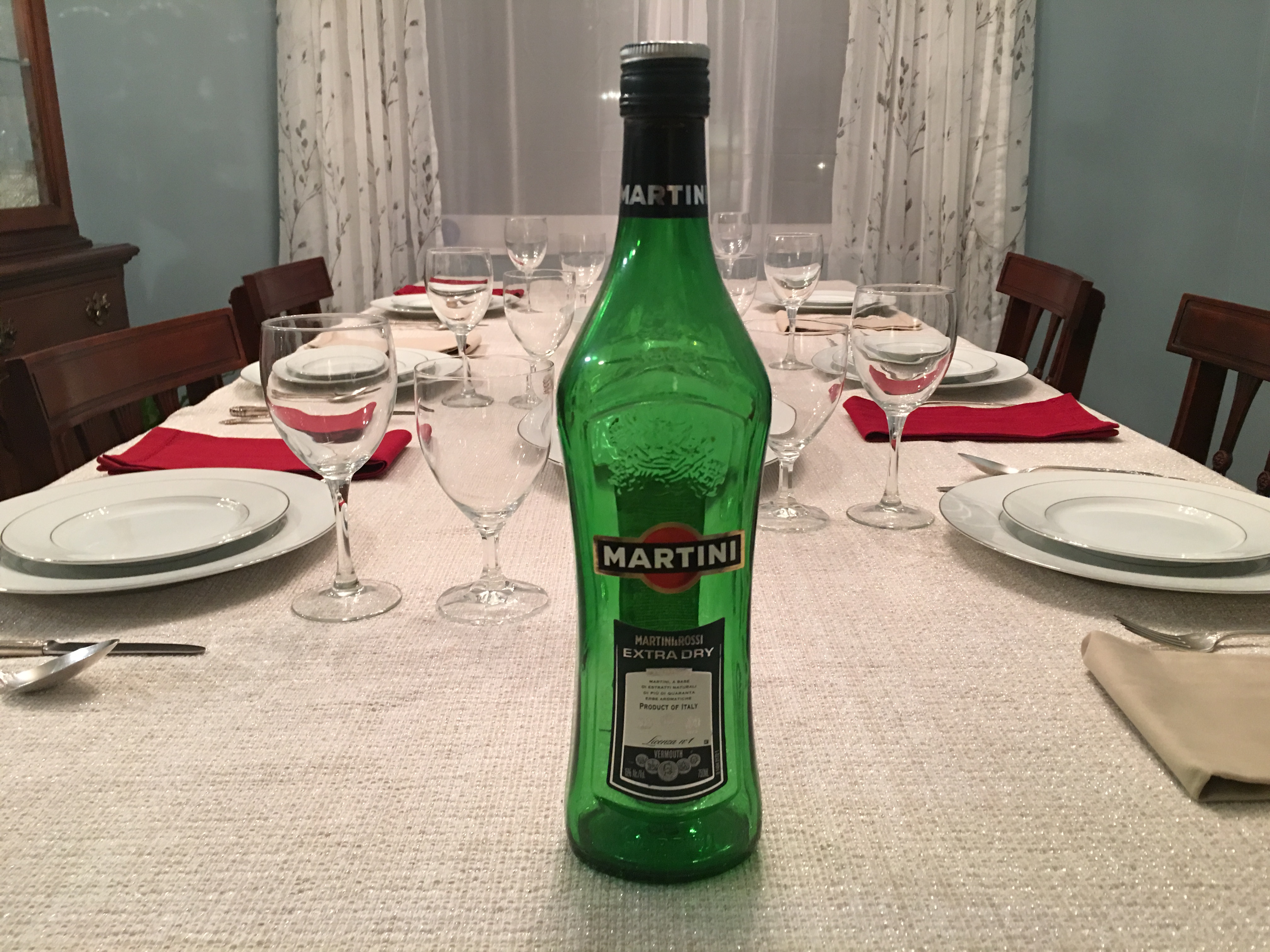“I need a pretentious cocktail to order.”
The request immediately snapped me from my daydreams.
For reasons I won’t go into here, we were headed to a social function. And Liz wanted to send the appropriate social cue: engaged, but slightly and arrogantly aloof (see above: pretentious). Not negatively and actively pretentious, but rather one of perceived pretentiousness, as in: I dressed up to go out and I speak with proper grammar. That kind of pretentiousness–the kind that would complement her husband’s trenchcoat/tie/scarf-wearing pretentiousness. You get the idea.
Mix pretentiousness with drinking, and in this very specific scenario, she was married to the right man.
“Ah, well then you need an obscure yet classic cocktail,” I replied, then began thinking. It had to be something she would drink, obviously, yet it had to be something I’d never seen on a menu before. But, it had to be rooted in old traditions–a recipe that had an official IBA standing and contested origination history. A memory coalesced of Alton Brown (culinary pretentiousness personified), arguing his historical version of the margarita’s predecessor. The associated visual he had provided was even in a Parisian cafe–or bar, whatever the French call those establishments. It was a perfect backstory, if only I could remember what it was called.
I remember having had one before, though I didn’t remember when or where. It had a dark spirit, and was sweet and citrus-y. I lapsed into silence, waiting for the fragmented neurons to fire in the appropriate sequence. Minutes passed since my response; while I grumbled to myself, cursed my memory, and browsed through my phone hoping to find the answer. Yet Liz didn’t interrupt my thoughts. Perhaps the visual signals I was sending indicated a heavy CPU load, like a fervently-blinking yellow light–you just let it finish what it’s doing before trying something else or it might lock up and crash.
“A sidecar!” Huzzah! I then researched the exact ingredients: cognac, lemon juice, and an orange liqueur–which sounded good to Liz. Then, to complete the effect, we discussed the manner in which such a drink had to be ordered: with a specified liqueur and manner of serving–ultimately concluded to be Grand Marnier and served up (and Courvoisier–if your preference is for that mediocre product of marketing other cognac that’s only drunk because of its popularity among hip-hop singers, kill yourself).

At the restaurant, the waitress took down the order with an obvious air of skepticism, probably assuming that someone at the bar had to know what it was. She returned with a cocktail–served up and in the appropriate vessel…with a glass of something else alongside. Upon inquiry, she explained that that was the Grand Marnier. Apparently somewhere along the way someone considered the liqueur to be a separate request, rather than a preferred ingredient. No matter, once the Grand Marnier was mixed in, it made for a very respectable sidecar.
Liz found it very agreeable to her palette, and decided to request the drink elsewhere, and each time it was a phenomenal success. This made me re-think my own cocktail of choice, the Manhattan, because 1) Bourbon is increasing in popularity, and 2) Possibly as a result of the first reason, the Manhattan is now well known, which leads to 3) The drink appears on cocktail menus now which means that everyone makes their own non-standard version, they’re watered-down, and they’re overpriced. My weak-ass Manhattan cost $10 next to Liz’s significantly stronger and tastier $7 sidecar.
So now I’m jealous. We can’t both order the same drink, and the sidecar’s become her socially-refined signature cocktail. Perhaps it’s time for me to just move on. Bourbon, you were good to me for a long time, but you’re kind of a whore, and too many lips have touched you.
–Simon






